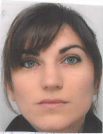- >Discover our teams
- >MitoLab
- >The identification of novel genetic causes of human rare diseases and to study the consequences of these genes alteration
The identification of novel genetic causes of human rare diseases and to study the consequences of these genes alteration
Estelle Colin, lecturer - hospital professor
Keywords: Intellectual disability; Epilepsy; Polymalformative syndromes; Next generation sequencin
State of the art and objectives
The prevalence of intellectual disability is estimated between 1% and 3% of the population. In France, mild intellectual disability affects between 10 and 20 per 1,000 people and severe intellectual disability between 3 to 4 per 1,000 people. Intellectual disability is part of a heterogeneous group of syndromic and non-syndromic pathologies with limitation in intellectual functioning, adaptive behavior and disabilities appearing before the age of 18. The origins of intellectual disability are mainly the neurogenesis and / or neuronal functions. About 50% of intellectual disabilities are still undetermined. Genetic etiologies explain a large number of intellectual disabilities and more particularly the severe forms. New technologies, such as next generation sequencing and others OMICs, have increased the diagnostic yield. Our objectives are to lead our research to the identification of novel genetic causes of human rare diseases and to understand the consequences of these genes alteration.
Main results from the last 5 years
- Identification and characterization of the WDR73 gene responsible for the Galloway Mowat syndrome which associates severe intellectual disability with corticosteroid-resistant nephrotic syndrome.
- Identification and characterization of UBA5 gene involved in the ufmylation process in early encephalopathy.
Main publications and patents from the 5 last years
- Lessel D, Schob C, Küry S, Reijnders MRF, Harel T, Eldomery MK, Coban-Akdemir Z, Denecke J, Edvardson S, Colin E, Stegmann APA, Gerkes EH, Tessarech M, Bonneau D, Barth M, Besnard T, Cogné B, Revah-Politi A, Strom TM, Rosenfeld JA, Yang Y, Posey JE, Immken L, Oundjian N, Helbig KL, Meeks N, Zegar K, Morton J; DDD study, Schieving JH, Claasen A, Huentelman M, Narayanan V, Ramsey K; C4RCD Research Group, Brunner HG, Elpeleg O, Mercier S, Bézieau S, Kubisch C, Kleefstra T, Kindler S, Lupski JR, Kreienkamp HJ. De Novo Missense Mutations in DHX30 Impair Global Translation and Cause a Neurodevelopmental Disorder. Am J Hum Genet. 2017 Nov 2;101(5):716-724.
- Berrou E, Adam F, Lebret M, Planche V, Fergelot P, Issertial O, Coupry I, Bordet JC, Nurden P, Bonneau D, Colin E, Goizet C, Rosa JP, Bryckaert M. Gain-of-Function Mutation in Filamin A Potentiates Platelet Integrin αIIbβ3 Activation. Arterioscler Thromb Vasc Biol. 2017 Jun;37(6):1087-1097.
- E Colin, J Daniel, A Ziegler, J Wakim, A Scrivo, T B. Haack, S Khiati, AS Denommé, P Amati-Bonneau, M Charif, V Procaccio, P Reynier, KA Aleck, LD Botto, CL Herper, CS Kaiser, R Nabbout, S N’Guyen, JA Mora-Lorca, B Assmann, S Christ, T Meitinger, TM. Strom, H Prokisch, The FREX Consortium, A Miranda-Vizuete, GF.Hoffmann, G Lenaers, P Bomont, E Liebau, D Bonneau. Biallelic Mutations in UBA5 Reveal UFM1 Cascade as a New Pathway for Early-Onset Encephalopathy. Am J Hum Genet. 2016 Sep 1;99(3):695-703.
- Colin E, Huynh Cong E, Mollet G, Guichet A, Gribouval O, Arrondel C, Boyer O, Daniel L, Gubler MC, Ekinci Z, Tsimaratos M, Chabrol B, Boddaert N, Verloes A, Chevrollier A, Gueguen N, Desquiret-Dumas V, Ferré M, Procaccio V, Richard L, Funalot B, Moncla A, Bonneau D, Antignac C. Loss-of-function mutations in WDR73 are responsible for microcephaly and steroid-resistant nephrotic syndrome: Galloway-Mowat syndrome. Am J Hum Genet. 2014 Dec 4;95(6):637-48.
- D Bonneau, E Colin, F Oca, M Ferré, A Chevrollier, N Guéguen, V Desquiret-Dumas, S N'Guyen, M Barth, X Zanlonghi, M Rio, I Desguerre, C Barnerias, M Momtchilova, D Rodriguez, A Slama, G Lenaers, V Procaccio, P Amati-Bonneau, P Reynier. Early-onset Behr syndrome due to compound heterozygous mutations in OPA1. Brain 2014.
Collaborations
- The Western France consortium HUGODIMS (French acronym standing for “Projet inter-régional Français des Hôpitaux Universitaires du Grand Ouest pour l’exploration par approche exome des causes moléculaires de Déficience Intellectuelle isolée ou syndromique Modérée à Sévère”.
- ERI28 “NeoVasc", 76183 Rouen Cedex, France.
- Department of Molecular Physiology, Westfälische Wilhelms-University Münster, 48143 Münster, Germany.
- Avenir-Atip team, INSERM U1051, Institute of Neurosciences of Montpellier, University of Montpellier, 34091 Montpellier Cedex 5, France.
- Institut National de la Santé et de la Recherche Médicale Unité Mixte de Recherche 1163, Laboratory of Inherited Kidney Diseases, 75015 Paris, France.
Acknowledgements for the financial supports
Project fundings: 30k€ from Angers University Hospital for the identification and characterization of a new gene involved in the Galloway Mowat syndrome.



